- Back to Home »
- Obama's not the only one ...
- Obama news conference was a near-acknowledgment his presidency is at pivot point
- Problems during a second term aren't unique to the 44th President
- Historian points to staff changes as one cause for second-term drama
- Two-term presidents are also considered "lame ducks" by Congress
Washington (CNN) -- When President Barack Obama took to the podium for Thursday's news conference/cum-mea culpa on the disastrous Obamacare roll out, the commander-in-chief said repairing his damaged credibility was on him and no one else.
John King: For Obama, a bad turn or a tipping point?
The bloodletting was a near-acknowledgment that his presidency is at a tenuous point. The Obama administration's mismanagement of his signature legislative achievement threatens to sink the rest of his second-term agenda. With more than three years left in office, Obama teeters on the brink of lame-duckedness.
But the problem of a tortured second term is not unique to the 44th President. Many before Obama triumphantly won reelection only to be sunk by a scandal, a debacle or a mistake.
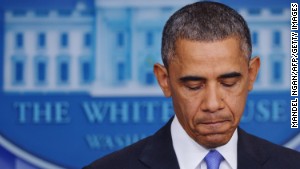 Obamacare: What's next?
Obamacare: What's next? 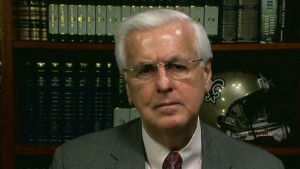 How to fix Obamacare?
How to fix Obamacare?  AHIP 'concerned' over Obamacare fix
AHIP 'concerned' over Obamacare fix 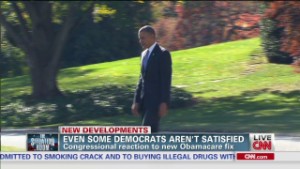 Mixed reactions to Obamacare 'fix'
Mixed reactions to Obamacare 'fix' 3 hurdles Obamacare fix must overcome
For George W. Bush, public weariness over wars in Iraq and Afghanistan and the debacle over the government's response to Hurricane Katrina, made his second term seem longer than four years.
Bill Clinton's affair with Monica Lewinsky and his impeachment by the House marked his second term.
Those aren't the only instances.
Ronald Reagan had the Iran-Contra scandal; Harry Truman's final years in office were dominated by the war in Korea and Richard Nixon resigned over Watergate.
Related: Most former presidents look better through history's eyes
Such woes have become so commonplace that they are summed up with this moniker: the second-term curse.
Gone is the energized A-team
When a President first takes office, political and other pros are lining up for jobs. The President can pick from the best and the brightest to make the wheels turn.
"When you come into the White House, that is the moment of great promise," said Russell Riley, presidential scholar and associate professor at the University of Virginia's Miller Center. But ultimately the demands of working for a President take their toll and attrition sets in.
"People get worn out," and leave, Riley said. "Over time, there tends to be some deterioration in the quality of the team that you are able to put together."
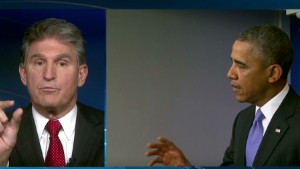 Sen Manchin on Obamacare rollout problems
Sen Manchin on Obamacare rollout problems 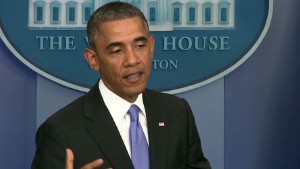 Obamacare's unanswered questions
Obamacare's unanswered questions  Bachmann: I lost my health insurance
Bachmann: I lost my health insurance  Are Democrats heading for a civil war?
Are Democrats heading for a civil war? Borger: How could Obama not have known?
Obama: HealthCare.gov needs more than technical fixes
Riley points to the Reagan administration as an example.
When Reagan was inaugurated in 1981, he brought with him three confidants who became "The Troika."
James Baker, Ed Meese and Michael Deaver effectively ran the White House staff and it paid off with reelection and a historic 525 electoral votes in 1984.
But then the team began to fray.
Baker became Treasury Secretary and Meese, Attorney General, while Deaver left the White House for lobbying.
Under new leadership, Act II of the Reagan White House did not hit on all cylinders.
The Iran-Contra affair, in which the Reagan administration was fingered for selling arms to Iran and circumventing a congressional ban by using the proceeds to send arms and money to anti-Communist rebels in Nicaragua, became a huge scandal.
"It was disaster at the White House," Riley said. "That is not a mistake you make typically in a first term. It is case where you are trying to juggle the staffing apparatus later on."
Digging for dirt and sensing a lame duck
To David Nichols, a presidential historian and expert on President Dwight Eisenhower, the reason for second-term woes is a combination of leverage and time.
"Their leverage on lawmakers in the Congress and with the voters is just inevitably diminished," Nichols said, pointing out that once Congress begins to smell presidential weakness, they seize on it as a way to speed up the "lame duck" process.
"The longer Presidents are around and when people get to know you well, they begin to know where your soft spots are and they know what you are good and what you aren't good at," Nichols said. "People eventually begin to figure out how to get to the Presidents. That is just a function of the number of years."
To Nichols, this could already be happening with Obama.
Cruz talks about 'vindication'
Obamacare enrollment numbers give GOP second wind
 Why Obamacare is a 'house of cards'
Why Obamacare is a 'house of cards'  How did Obama not know of website woes?
How did Obama not know of website woes? Republicans in Congress have been attacking Obama since his 2009 inaugural. And while Obama has won some legislative victories, those have been hard fought.
The health care law he championed and got with only Democratic support in Congress is off to a rocky start with the public, and Republicans are sensing weakness.
Poll: Approval of Obamacare drops
And with that, Nichols said, comes Republican dreams of a larger majority in the House, control of the Senate and a pathway to the presidency in 2016.
"For the opposition party, the more bad stuff they can dig up, the better they make it for themselves in the next election," Nichols said. "So tearing down the incumbent is a good way to prepare the way for a change and the American public tends to keep people for a while but quickly push them out."
Clinton's experience is a good example.
While accusations of infidelity plagued Clinton since his time as governor of Arkansas, it wasn't until years into his presidency that an accusation of impropriety was able to stick and severely damage him politically.
The chickens come home to roost
When Obama ran for office in 2008, he made a number of promises: immigration reform, healthcare, ending wars in Iraq and Afghanistan, dealing with climate change.
During his first term, he addressed some of those -- ending the war in Iraq and slowly drawing down the conflict in Afghanistan. His administration also won on Obamacare.
6 things presidents wish they hadn't said
But the implications of those promises were not felt right away, Riley said.
Romney on Obamacare promise: 'It was not honest'
"You make policy decisions in the first term and because it usually takes a while for these things to mature and to ripen and to get enacted, you can easily be in your fifth year before the full consequences of your first term become apparent," Riley said. "When you get to the second term, the days of reckoning appear."
Riley's point is that when Obama promised to reform the health care system, he and his advisers had to know there was going to be pain involved with executing the law.
But as with most administrations, Riley said, the White House also knew those problems weren't going to come about for years.
"Presidents will always make decisions either to defer judgment on something or will make hard decisions, recognizing the consequences won't come down on them until after reelection," Riley said. "I think it is just a general pattern."
The history of two terms
Although two terms is now the law, it was once just a tradition started by George Washington.
After serving two terms, Washington declined to run again.
"While choice and prudence invite me to quit the political scene, patriotism does not forbid it," Washington said, acknowledging he could have run again had he wanted to.
He didn't and the tradition was formed and stood until Franklin Roosevelt ran and won four times, dying soon into his final term as World War II was drawing to a close.
After FDR, the 22nd Amendment to the Constitution set a two-term limit.
Bachmann: 'I lost my insurance under Obamacare'







